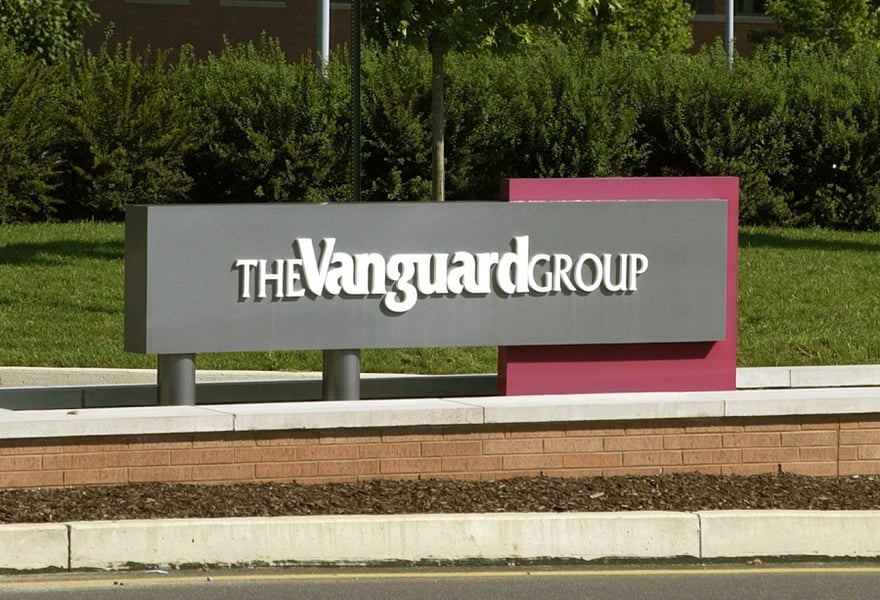The Vanguard Group Inc. this week became the second-largest U.S. exchange-traded fund provider, as the indexing pioneer's focus on fee-based advisers lifted it to new heights in a fast-growing market.
Vanguard's $436 billion in assets puts it second only to iShares, the ETF popularizer that now manages $761 billion in the U.S., according to ETF.com. That's up from the $334 billion the firm managed at the end of 2013 in U.S. ETFs.
About half of the money moving into Vanguard funds is coming from advisers, according to David Hoffman, a spokesman for Vanguard.
The success of the firm associated with passive investing comes even as it competes dollar-for-dollar with two competitors that were among the earliest innovators in ETFs, which recently
passed $2 trillion in assets in the U.S.
State Street Global Advisors, which fell to third place, helped bring the first ETF — the SPDR S&P 500 ETF (SPY) — to U.S. exchanges in 1993. SPY is the biggest ETF by assets, with $191 billion.
iShares, formerly a part of Barclays PLC, became a huge proponent of the index-based funds, building about five dozen by the end of 2000. Its acquisition by BlackRock during the financial crisis in 2009 recast that firm as the world's top money manager by assets.
Vanguard came to the ETF business in 2001 and still manages just 67 ETFs as adjuncts of its mutual funds, fewer than the 145 ETFs run by State Street and 301 run by iShares, according to Morningstar Inc.
PASSIVE DRAWS ADVISERS
The money flowing to Vanguard is coming from advisers such as Guy McPhail, a fee-only adviser at the GM Financial Group, which is based in Pennington, N.J.
Mr. McPhail said he used to market active management but found that client portfolios trailed the market slightly each year. He said he found himself forced three years ago to split with business partners who were not interested in a business model linked to passive investing.
“The fees were causing us to trail the benchmarks,” he said. “I couldn't convince my old partners to make the change. They didn't think we could charge as much money so I lost the battle.”
Mr. McPhail said he now invests most of his clients' money in products offered by Vanguard and
Dimensional Fund Advisors, another index-focused fund firm.
“We work exclusively with fee-based financial advisers, and I think that's different from just about most other asset managers out there,” said Jack Brod, a principal in Vanguard's adviser sales division, which accounts for a third of the firm's overall assets. “Fee-based advisers who charge an explicit, asset-based fee are naturally interested in keeping the costs associated with the investment vehicles at an absolute minimum so their all-in costs are as reasonable and as cost-competitive as it needs to be.”
He said Vanguard's flows into ETFs are driven more by advisers than many of its competitors, many of which
attract a large share of their money from institutional investors. Mr. Brod said fee-based platforms at large brokerage houses, such as the wirehouses, increasingly prefer to use ETFs.
Yet the debate about the utility of active manager selection among advisers rages on.
“John Bogle's a brilliant man — I don't agree with just going with ETFs, but he's been very successful at it,” said Jon L. Ten Haagen, a financial adviser in Huntington, N.Y. “I don't buy ETFs and I never have because you're buying a whole bushel of apples, the good ones and the bad ones, and I don't want to buy the bad ones.”
Mr. Bogle, an advocate of low-cost index investing, founded Vanguard in 1975.
But Mr. Ten Haagen said he respected peers who feel differently.
“People have bought into it and they haven't gotten terribly hurt over the years,” he said. “Maybe it's because of the broad diversification.”







